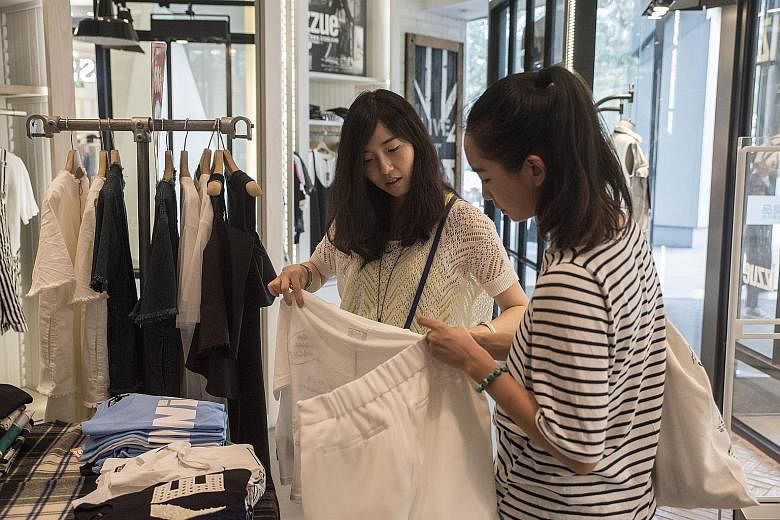HONG KONG • Madam Liu Zhenfeng got married at 25. The usual trappings of family life followed - a daughter, a home, furniture, toys.
That daughter, Ms Song Zongpei, now 28, is taking a different path.
Ms Song shares a rented apartment in Beijing with two roommates and is focusing on her career and her finances. She does not see marriage or motherhood in her immediate future. "At this stage, the most important thing for me is personal development."
Fewer Chinese people are getting married, a shift with profound implications for China's economic and social life. The decline in marriages means a decline in the number of babies and potentially less spending on homes, appliances and other family-related purchases - the kind of spending China needs to drive economic growth.
Already some businesses are thinking single. Jewellery-makers are offering cheaper baubles for unmarried sweethearts. One appliance-maker is selling smaller rice cookers. Foreign fertility services are advertising for Chinese women who want to freeze their eggs - a process prohibited for single women in China - to have children later.
But the marriage slump - caused in large part by China's ageing population and the legacy of its harsh one-child policy - has a silver lining. It also stems from the rise of an educated population of women.
Specialists in economics, demography and sociology say some of those women are delaying marriage to build careers and establish financial footing, resulting in a more empowered female population that no longer views marriage as the only route to security.
"Because they are highly educated, they hold well-paid jobs, they lose the financial incentive to get married," says Professor Zhang Xiaobo, who teaches economics at Peking University's National School of Development.
Ms Cheng Guping, a 30-year-old from Hangzhou in eastern China who works at a start-up and is pursuing a doctorate in economics, is one of those women. She cited her professional and educational obligations as the reason she and a recent boyfriend broke up. "I felt that our level of affection wasn't enough yet," she said. "I want to see how far I can go on my own."
In Chinese homes, the shift raises questions about family ties and filial responsibilities.
The mother of 29-year-old Wu Jingjing worries about who will care for her daughter if she does not marry. "We can still care for her now, but we won't be here forever," Madam Zhai Liping, 53, said. "We hope she will find someone who cares for her, so we can feel more reassured."
Still, Ms Wu is single and she said she is still determined to wait until she meets the right person.
"Back in the old times, many people met because they were introduced and just wanted to find a partner to live through everyday life," she said.
"There were very few people who had a free relationship based on love. Now lots of people reject that kind of old attitude and want to find the suitable person."
NYTimes

